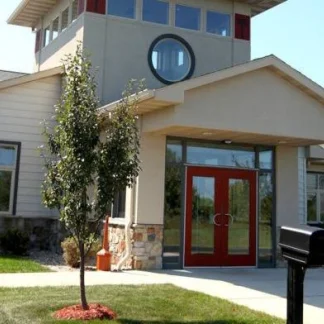Theda Care Behavioral Health
Theda Care Behavioral Health is a private rehab located in Oshkosh, Wisconsin. T...
Nova Counseling Services is a State of Wisconsin-licensed provider of medically monitored treatment for people suffering from alcoholism and other drug addictions. Nova Counseling Services offers a full continuum of care to help addicts through the long road of addiction recovery.
Their highly structured program includes educational lectures on addiction, group addiction counseling, individual addiction counseling, AA first-step work (examining loss of control over the substance and resulting problems), recreational therapy and attending in-house and local Alcoholics or Narcotics Anonymous meetings. One of the most important aspects of their residential inpatient treatment is the opportunity to live in a therapeutic community. At Nova, individuals can develop trusting relationships and practice their new-found addiction recovery skills.
Contact us for more information: (920) 231-0143

Connect with Nova Counseling Services by calling their admissions team directly.
(920) 231-0143 Website Get DirectionsThe Substance Abuse and Mental Health Services Administration (SAMHSA) is a branch of the U.S. Department of Health and Human Services. Established in 1992 by congress, SAMHSA's mission is to reduce the impact of substance abuse and mental illness on American's communities.
SAMHSA Listed: Yes
State Licenses are permits issued by government agencies that allow rehab organizations to conduct business legally within a certain geographical area. Typically, the kind of program a rehab facility offers, along with its physical location, determines which licenses are required to operate legally.
State License: Wisconsin License Number: 5444501
When appropriate, family involvement in treatment is essential to recovery. When an addict starts to get healthy, it becomes easier to maintain recovery if an entire family supports the lifelong process. Participation in Families Anonymous and/or Al-Anon programs for family and friends of addicts is strongly encouraged. When more intensive care is appropriate, their counselors can also assist in arranging referrals to experienced professionals outside of Nova.
Group therapy is any therapeutic work that happens in a group (not one-on-one). There are a number of different group therapy modalities, including support groups, experiential therapy, psycho-education, and more. Group therapy involves treatment as well as processing interaction between group members.
In individual therapy, a patient meets one-on-one with a trained psychologist or counselor. Therapy is a pivotal part of effective substance abuse treatment, as it often covers root causes of addiction, including challenges faced by the patient in their social, family, and work/school life.
Group therapy is any therapeutic work that happens in a group (not one-on-one). There are a number of different group therapy modalities, including support groups, experiential therapy, psycho-education, and more. Group therapy involves treatment as well as processing interaction between group members.
In individual therapy, a patient meets one-on-one with a trained psychologist or counselor. Therapy is a pivotal part of effective substance abuse treatment, as it often covers root causes of addiction, including challenges faced by the patient in their social, family, and work/school life.
In individual therapy, a patient meets one-on-one with a trained psychologist or counselor. Therapy is a pivotal part of effective substance abuse treatment, as it often covers root causes of addiction, including challenges faced by the patient in their social, family, and work/school life.
Theda Care Behavioral Health is a private rehab located in Oshkosh, Wisconsin. T...
Mental Health Institute is a public rehab located in Winnebago, Wisconsin. Menta...
Sherman Counseling is a private rehab located in Oshkosh, Wisconsin. Sherman Cou...
Mercy Counseling is a private rehab located in Oshkosh, Wisconsin. Mercy Counsel...